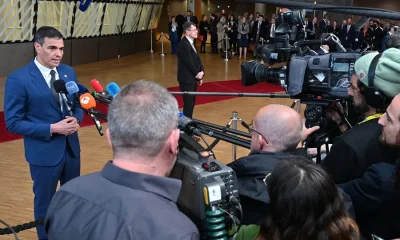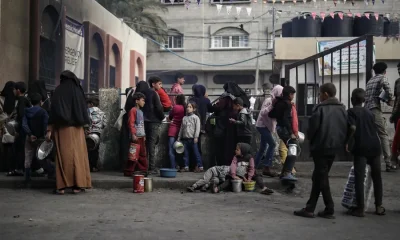International
Palestine’s path to full membership in the UN will be long
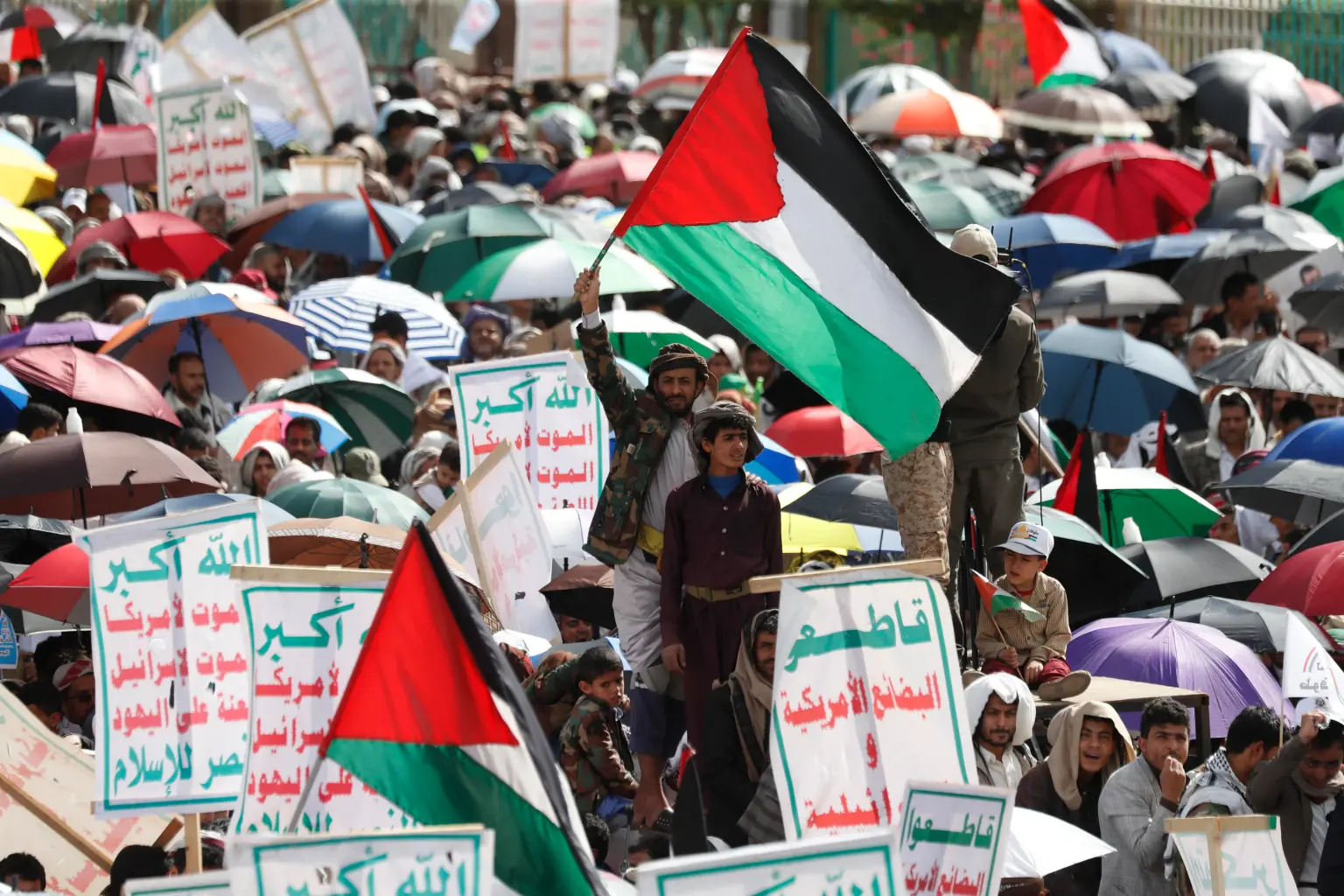
Palestine’s request to become the 194th State of the United Nations could follow the relatively rapid steps of other States that have joined the UN throughout the 21st century, but in its case it faces the probable veto of the United States in the Security Council.
The most recent State to take a seat at the UN as a full member was South Sudan, which in 2011 separated from Sudan after a friendly agreement. His incorporation into the UN was made by acclamation on July 14 of that year, just a week after his declaration of independence.
In 2006, Montenegro, another state that emerged from the dismemberment of the former Yugoslavia, separated after a popular referendum from the last remaining remnant of that federation and proclaimed its independence from Serbia. The referendum took place on June 3 and on the 28th of that same month the state was admitted to the UN.
And 2002 was a very special year because the UN welcomed two members: Switzerland did so in September, thus putting an end to an anomaly that made it welcome numerous international organizations but did not sit at the UN for the sake of a principle of neutrality inscribed in its DNA.
Much more traumatic was the chaos of Timor Leste, which was also admitted in September 2002. The new Asian country, a former Portuguese colony, lived 24 years of occupation and resistance against Indonesia and then almost three years of supervised administration of the UN, but its entry into the United Nations was unanimously approved by the Assembly.
In 2011, Palestine first presented its formal request to enter the United Nations, but the procedure ran aground in its first stage: it did not get the support of 9 of the 15 members of the Security Council (that is, the qualified majority), so that request did not reach the General Assembly, the second stage of the process.
Palestine had to settle for acquiring the status of “observer state,” an anomaly that only the Vatican has in the United Nations, which is not even considered a country with its own attributes.
Palestine obtained 138 votes in the General Assembly in favor of its new observer status, while 9 voted against (including Israel, the United States and Canada) and 41 abstained.
It is foreseeable that Palestine will not have it as easy as South Sudan, Montenegro or Switzerland had, and all observers assume that Washington will use the veto tool in the Security Council, which is the instance where the incorporation process begins and ends.
According to the UN letter, the request for a new State necessarily goes through the following stages: it is formulated before the Security Council, which appoints an ad hoc committee to study it formed by the fifteen members, and if the committee approves it, the Council then assesses whether it is “a peace-loving state” (article 60), in which case it sends the issue to the General Assembly.
In the Assembly, the votes of two-thirds of the Member States are needed to move forward, and if this happens, the final decision returns to the Security Council.
The United States, as a permanent member of the Security Council, has the right to veto the process at any time – in 2011 it threatened to do so, but did not need it – and few doubt that he will also use it on this occasion.
If this happens, the dream of Palestine will have fallen by the wayside.
But something has changed since 2011: now, every time a permanent member uses the right of veto, the question comes to the General Assembly, where that country must explain its position and submit to a non-binding vote.
At the current juncture, the United States will once again be evident in the face of a very large majority of states that are expected to support Palestinian membership.
International
Bolivia Orders Three Investigations Into Deadly Military Plane Crash
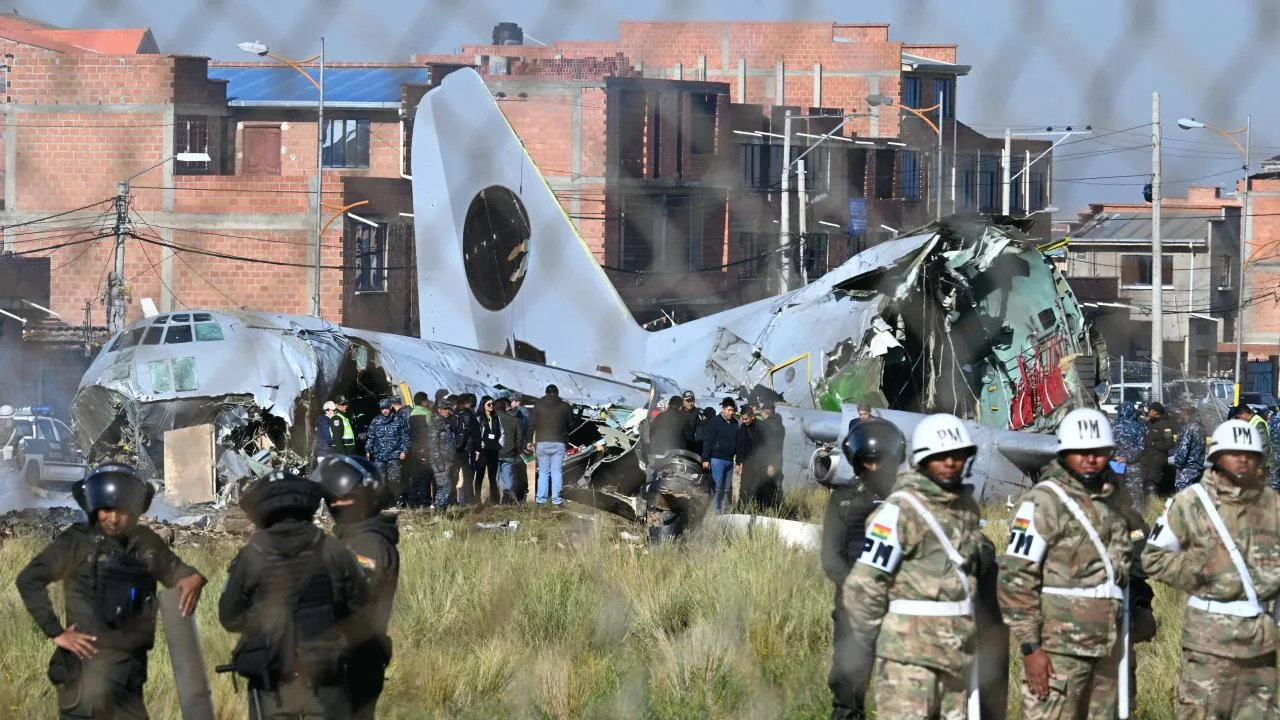
Bolivia’s Defense Minister Marcelo Salinas announced Monday that three separate investigations will be conducted into Friday’s crash of a military cargo aircraft at El Alto International Airport, near La Paz, which left at least 22 people dead.
The Hercules aircraft, operated by the Fuerza Aérea Boliviana (FAB), was transporting cash intended for the Central Bank of Bolivia when it overshot the runway after landing from the city of Santa Cruz. The plane reportedly traveled nearly one kilometer beyond the airport perimeter.
The incident sparked chaotic scenes, with individuals attempting to collect scattered banknotes. Authorities detained 51 people in the aftermath, and the government declared three days of national mourning.
Multiple Investigations Underway
The first inquiry is being led by a military board from the Bolivian Air Force, which has already taken custody of the aircraft’s black box for analysis.
Minister Salinas said two additional investigations will follow — one conducted by the insurance company and another by the aircraft’s manufacturer.
“At least two more investigations will come, that of the insurance company and that of the aircraft manufacturer,” Salinas said during a press conference in Santa Cruz.
He cautioned that the investigative process could take between three and six months, noting that the black box cannot be opened in Bolivia due to the lack of specialized laboratories for analysis.
Awaiting Official Findings
Salinas stressed that the FAB investigative board is the highest authority in the case and urged the public to wait for its conclusions to avoid speculation about the causes of the crash.
He also confirmed that the government has contacted the families of the 22 victims and the 37 injured, as well as the owners of 15 damaged vehicles, to coordinate procedures with the insurer and cover the corresponding expenses.
International
Mexico Calls for Immediate Probe After National Dies in ICE Custody
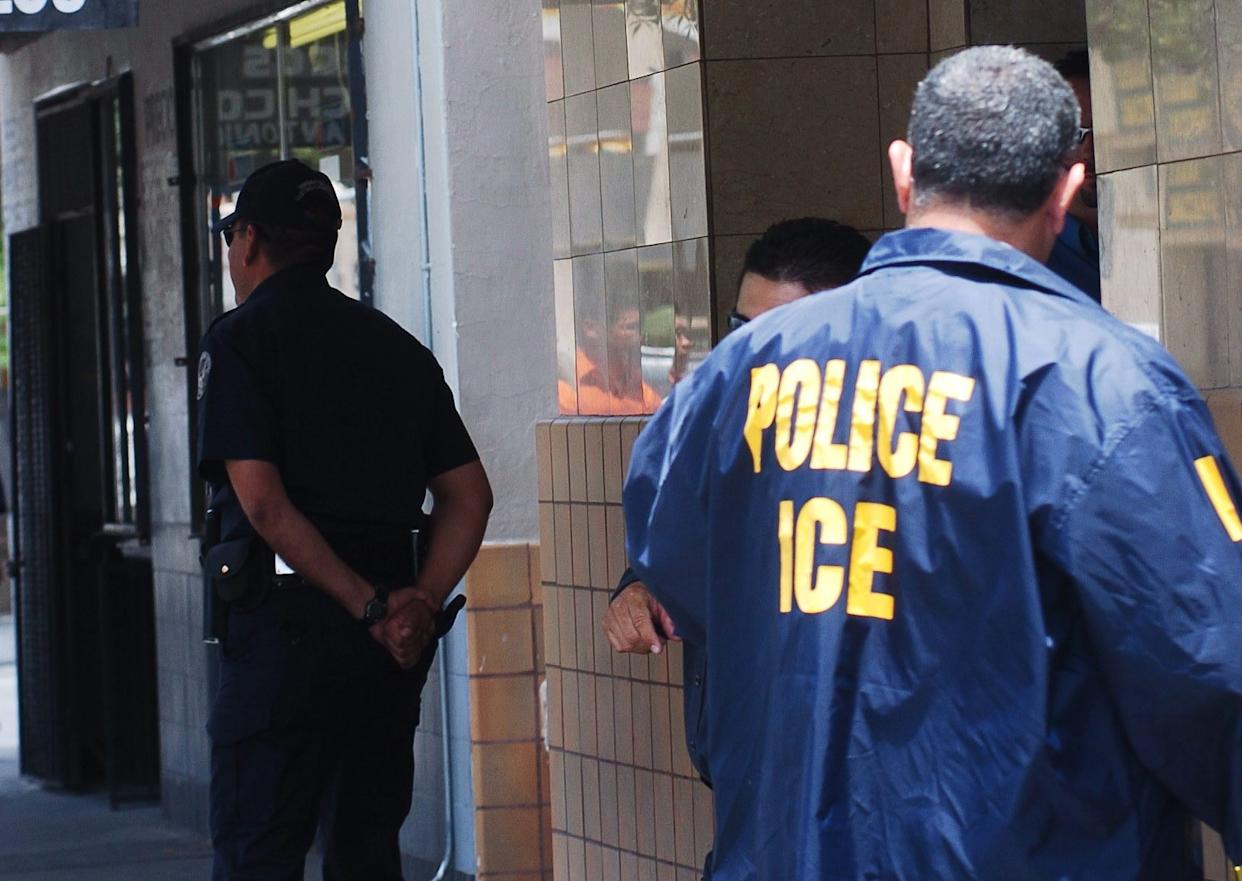
Mexico’s Secretaría de Relaciones Exteriores (SRE) on Monday called on U.S. authorities to conduct an “immediate and thorough” investigation into the death of a Mexican national while in custody of U.S. Immigration and Customs Enforcement (ICE) at a processing facility in California.
In a statement, the Mexican government described the death as “regrettable” and urged U.S. officials to clarify the circumstances surrounding the case in order to “determine responsibilities and ensure that such events do not happen again.”
Death at Adelanto Processing Center
According to available information, the Mexican citizen died at the Adelanto Processing Center in California while under ICE custody. Authorities have not yet released the individual’s identity or the cause of death.
Following the incident, Mexico’s Foreign Ministry formally requested “detailed information” from U.S. authorities, including the detainee’s medical records and custody reports.
Consular Assistance Activated
The Mexican Consulate in San Bernardino, California, has activated consular assistance protocols to provide ongoing support to the deceased’s family. Officials have contacted relatives to express condolences and offer legal guidance, as well as assistance with the necessary procedures to repatriate the remains.
“The handling of situations like this and the establishment of mechanisms to resolve them are priorities for the Government of Mexico,” the Foreign Ministry said, adding that it will formally request an investigation into any systemic conditions that may have contributed to such incidents.
Local Mexican media reported that seven Mexican nationals died while in ICE detention last year — the highest number recorded since the agency was created.
International
Anti-ICE Billboard Campaign Targets Immigration Spending in 31 U.S. Cities

More than 200 billboards criticizing U.S. Immigration and Customs Enforcement (ICE) began appearing Monday in 31 cities across the United States, including Miami, as part of a campaign highlighting the high cost of immigration enforcement operations for taxpayers.
The initiative, titled “ICE Costs Us,” was launched by the civil rights organization Mijente and will run for four weeks.
Criticism of Spending and Enforcement Tactics
The billboards feature images of ICE agents during arrests or carrying military-style weapons. According to the organization, spending on military-grade equipment for the agency has increased by 600 percent in recent years.
Several signs display messages such as:
“Your taxes are being wasted” and “ICE’s cruelty costs you $28 billion,” referring to the agency’s annual budget.
In a statement, Marisa Franco, co-founder of the Mijente Support Committee, said:
“For too long, our government has prioritized building cages and investing billions in an immigration enforcement apparatus that has left families torn apart and communities terrified.”
She added that “Millions of Americans are living paycheck to paycheck, yet this violent agency continues operating with a blank check. These decisions do not make us safer nor improve our economic security. Our billboards highlight these choices and demand a different path.”
Budget Debate and Medicaid Comparison
The campaign also draws a comparison between ICE’s funding and the estimated 17 million people who could lose health coverage under Medicaid due to federal budget cuts under President Donald Trump.
Other billboard messages seen in various cities include:
“They get billions to beat us; we get layoffs and rising rents” and “Funding ICE is a fast track to fascism.”
Organizers say the goal is to spark public debate about the allocation of federal funds for immigration enforcement and the broader economic and social impact of such policies on communities nationwide.
-

 International3 days ago
International3 days agoTrump Floats “Friendly Takeover” of Cuba Amid Rising Tensions
-

 Sin categoría2 days ago
Sin categoría2 days agoTrump: ‘We Think It’s True’ Amid Claims Iran’s Supreme Leader Was Killed
-

 International2 days ago
International2 days agoSecurity Council to Hold Emergency Meeting on Middle East Crisis
-

 International4 days ago
International4 days agoCocaine Production Surges 34% in 2023 as Market Expands into Africa and Asia
-

 International4 days ago
International4 days agoFederal Judge Blocks Trump Policy Allowing Deportations to Third Countries
-

 International1 day ago
International1 day agoPope Leo XIV Urges End to ‘Spiral of Violence’ in Middle East
-

 International1 day ago
International1 day agoIran Reports 201 Dead, 747 Injured After U.S. and Israeli Strikes
-

 International3 days ago
International3 days agoArgentina’s Senate Reviews Milei-Backed Labor Overhaul
-

 International4 days ago
International4 days agoClinton Accuses Republican Committee of Using Epstein Case to Shield Trump
-

 International6 hours ago
International6 hours agoBrazil’s Supreme Court Rejects Bolsonaro’s Bid for House Arrest
-

 International6 hours ago
International6 hours agoTrump Warns of ‘Major Wave’ of Attacks as Iran Conflict Escalates
-

 International6 hours ago
International6 hours agoAnti-ICE Billboard Campaign Targets Immigration Spending in 31 U.S. Cities
-

 International6 hours ago
International6 hours agoMexico Calls for Immediate Probe After National Dies in ICE Custody
-

 International6 hours ago
International6 hours agoBolivia Orders Three Investigations Into Deadly Military Plane Crash
-

 Central America6 hours ago
Central America6 hours agoPanama Canal Monitoring Trade as Middle East Conflict Disrupts Shipping



























